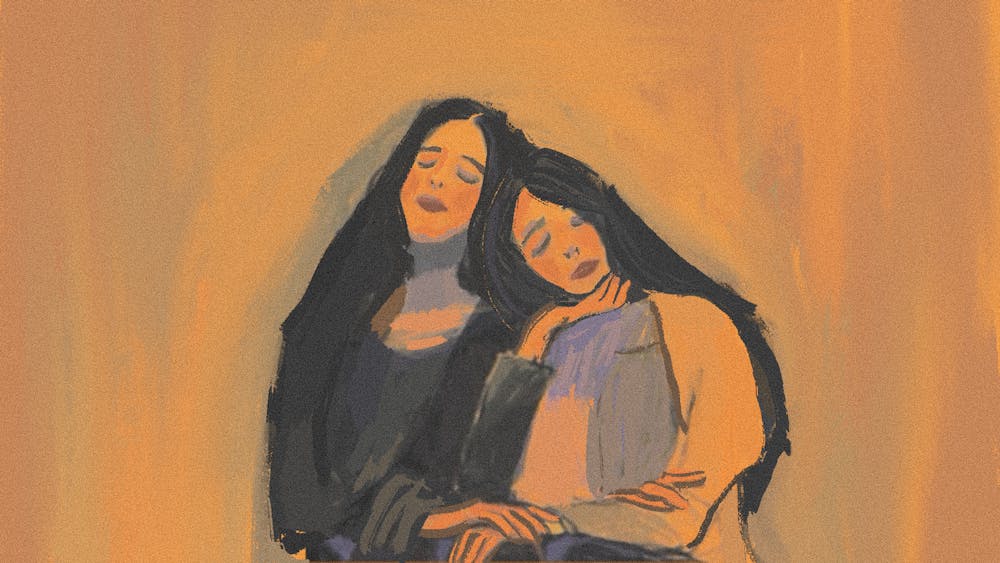How can you not read a book that advertises itself as 'subject to one of the most notorious obscenity trials in history?' This line, emblazoned on the Penguin Modern Classics’ edition of The Well of Loneliness, is probably what entices most readers to work through this 400-page tome of seminal lesbian literature. However, today’s readers will be challenged to square the outrage that this novel caused with the apparent tameness of its content.
On The Well’s publication in 1928, Sunday Express editor James Douglas began a campaign against it, writing, "I would rather give a healthy boy or girl a phial of prussic acid than this novel." The media campaign sent The Well to the British courts, where the Chief Magistrate Sir Chartres Biron demanded its withdrawal under the Obscene Publications Act of 1857, the same law that had sent author Oscar Wilde to prison in the 1890s. What exactly was so obscene?
In reality, the closest Hall comes to describing sex is ‘that night they were not divided.’ According to Biron, the novel’s ‘tendency to corrupt’ lay not so much in the presence of lesbianism (which was not illegal), but rather in the sympathy shown toward lesbians. However, the general public’s reception of the novel seems to be of a different opinion. Hall received thousands of letters of support, demonstrating "the public’s awareness that The Well of Loneliness was not an obscene novel and that Hall had been unfairly and unjustly treated by the government and the media."
One reader wrote to Hall that The Well ‘has made me want to live and to go on.’ Another wrote, "At first it repulsed and disgusted, and then the pathos and beauty of it got me." We would be surprised today to see a reader "repulsed and disgusted" by a benign romance. Yet criticism of The Well has returned in full force, with leading queer author Jeanette Winterson describing it as "one of the worst books yet written." Has Radclyffe Hall not suffered enough? The Well of Loneliness survived court trials in both England and America; will Winterson’s words be the nail in its coffin?
Indeed, we can’t deny certain issues with Hall’s prose and pace. Still, this doesn’t need to overshadow the novel’s legacy: it serves, and continues to serve, a larger purpose beyond a pleasurable reading experience. In writing The Well, Hall was pioneering a shift in attitudes toward the lesbian community on multiple levels: "Hall argued, without apology, for the invert’s 'right to love'." Hall’s characters are not just narrative subjects, but a means for her to assert the necessity of equal rights in love and marriage. After the protagonist, Stephen, is called "a sin against creation" by her mother, Hall writes a moving speech:
"As my father loved you, I loved. As a man loves a woman, that was how I loved—protectively, like my father. I’m not ashamed of it; there’s no shame in me."
The novel ends in tragedy when Stephen feels forced to give up the woman she loves to a man who can offer this woman the "protection" that Stephen cannot: marriage. Throughout the novel, Stephen struggles against the fact that she can’t marry her partner. For Stephen, this is "the most poignant suffering of all, the deepest, the final humiliation." Hall was one of the first to harness the evocative force of literature to persuade readers to accept the queer community. The novel’s mission is encapsulated in its final lines, Stephen’s plea to the reader to "Rise up and defend us. Give us also the right to our existence!"
In writing The Well, Hall was also attempting to shift the framework through which society views gay people. The social and legal responses to The Well align with the very paradigm that Hall sought to dismantle: the contagion model, which sees homosexuality as a freely chosen vice (rather than an innate orientation) that can be spread if not suppressed. When Douglas originally attacked The Well, his use of words such as plague, pestilence, putrefaction, and leprosy underscored his view that homosexuality is a contagious disease needing containment. Hall wrote a novel that began to persuade the world that homosexuality is born, not made and that those who are born this way deserve both recognition and protection.
Reading The Well of Loneliness was not quite as sexy of an experience as perhaps I had first pictured, but instead turned out to be an education on how society’s views of lesbians have shifted. In many ways, The Well feels outdated and even regressive in some aspects. We would be wrong to think that the only important thing about this novel is that it sparked controversy. The Well of Loneliness is important because its writer was brave enough to call for empathy from her readers, paving the way for increased LGBTQ+ equality.







